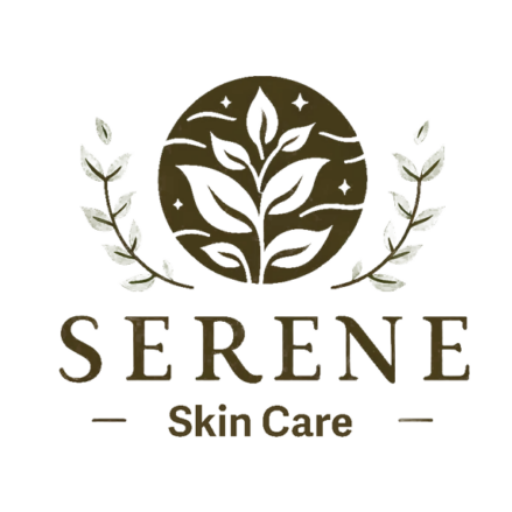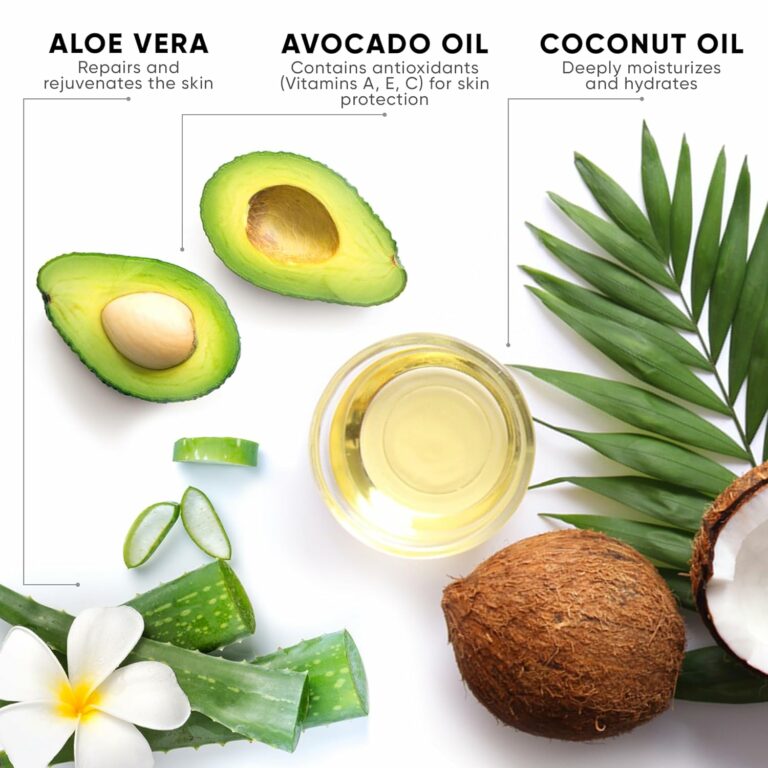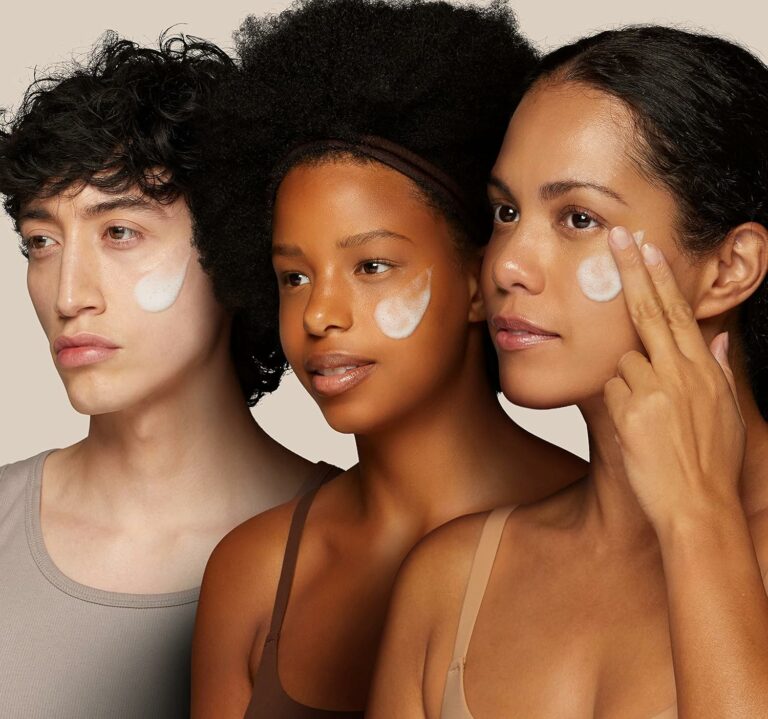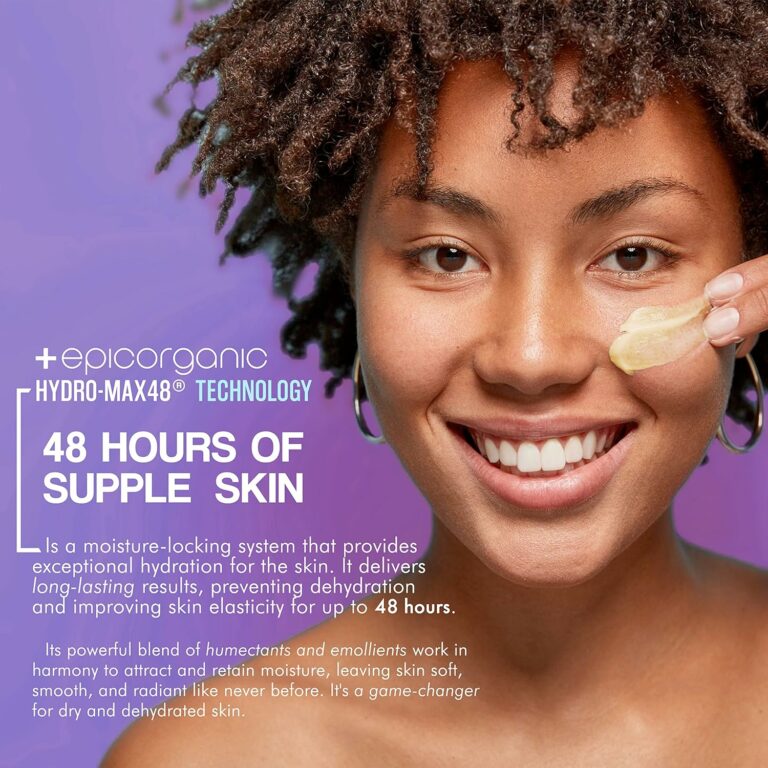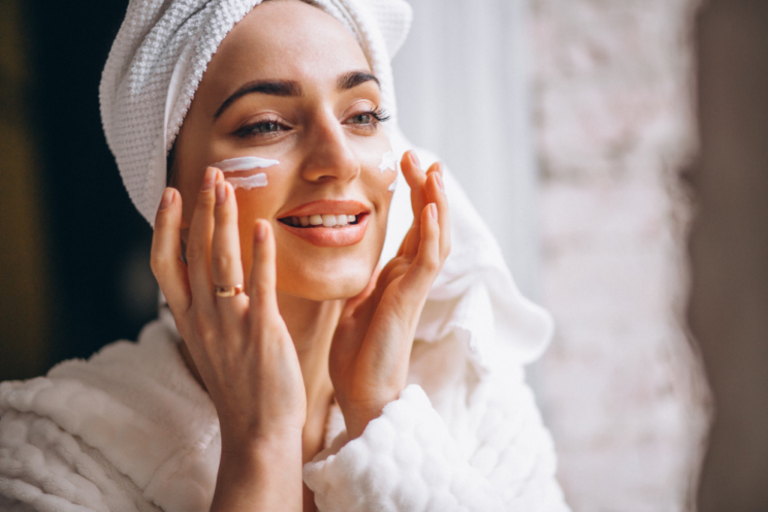Ayurveda, an ancient Indian practice, has been gaining traction in the modern skincare industry. This article examines the integration of Ayurvedic practices in the realm of skincare and explores how they have transformed the way people approach their skincare routines. From the use of natural ingredients to the focus on balancing mind, body, and spirit, Ayurveda offers a holistic approach to skincare that is gradually revolutionizing the beauty industry. Join us as we delve into the world of Ayurvedic practices and uncover the secrets behind its rising popularity in modern skincare.
Ayurveda and its principles
Ayurveda, an ancient Indian holistic healing system, has gained popularity in recent years for its principles in skincare. This traditional practice focuses on achieving balance and harmony within the body, mind, and spirit. Ayurvedic skincare emphasizes the use of natural ingredients and treatments tailored to an individual’s unique constitution or dosha. By understanding Ayurveda, one can delve into the profound wisdom it offers for achieving healthy and glowing skin.
Understanding Ayurveda
Ayurveda is derived from two Sanskrit words, “Ayur” meaning life and “Veda” meaning knowledge. It is an ancient practice that originated in India over 5,000 years ago. According to Ayurveda, every individual is made up of a combination of the three doshas: Vata, Pitta, and Kapha. These doshas are the physiological and energetic forces that determine our unique characteristics, both internally and externally. By understanding one’s dominant dosha, Ayurveda provides insights into overall health and well-being, including skincare.
Principles of Ayurveda in skincare
The principles of Ayurveda form the foundation of Ayurvedic skincare. Its approach is based on the belief that true beauty can only be achieved through inner balance and harmony. Ayurvedic skincare focuses on treating the root cause of skin concerns rather than just the symptoms. This holistic approach considers various factors, such as diet, lifestyle, and the use of natural ingredients, to promote healthy and radiant skin.
Benefits of Ayurvedic skincare
Ayurvedic skincare offers numerous benefits that set it apart from conventional skincare practices. Here are some key advantages of incorporating Ayurveda into your skincare routine:
Holistic approach to skincare
Unlike many skincare practices that only target the surface of the skin, Ayurvedic skincare takes a holistic approach by considering the entire body and mind. It recognizes that skin health is deeply interconnected with overall well-being, and thus addresses imbalances at their source.
Gentle and natural ingredients
Ayurvedic skincare relies on natural ingredients that are gentle and nourishing for the skin. Ayurvedic formulations often include herbs, oils, and plant extracts known for their therapeutic properties. These ingredients help cleanse, hydrate, and rejuvenate the skin without harsh chemicals or synthetic additives.
Suitable for all skin types
One of the remarkable aspects of Ayurvedic skincare is its ability to cater to all skin types. Whether you have oily, dry, sensitive, or combination skin, Ayurveda offers personalized solutions based on your unique dosha. By understanding your skin’s specific needs, Ayurveda helps restore balance and promote optimal skin health.
Treats underlying causes
While conventional skincare often focuses on addressing the symptoms, Ayurvedic skincare aims to treat the root causes of skin concerns. By considering an individual’s dosha and identifying any imbalances, Ayurvedic treatments target the core issues that lead to various skin conditions. This approach ensures long-term results and promotes overall skin health.
Ayurvedic skincare routine
An Ayurvedic skincare routine follows a comprehensive step-by-step approach, incorporating various practices to cleanse, nourish, and rejuvenate the skin. By understanding and implementing these steps, you can optimize your skincare routine and experience the benefits of Ayurveda.
Cleansing
Cleansing is the first and crucial step in an Ayurvedic skincare routine. It involves using gentle, non-foaming cleansers or natural ingredients such as milk, yogurt, or chickpea flour to remove dirt, impurities, and excess oil from the skin. Ayurvedic cleansers effectively cleanse the skin without stripping away its natural oils, leaving it refreshed and balanced.
Exfoliation
Exfoliation helps remove dead skin cells, unclog pores, and promote healthy cell turnover. In Ayurveda, exfoliation is typically done using natural ingredients like finely ground herbs or powders. These gentle exfoliants help slough off dead skin cells, revealing a brighter complexion and allowing for better absorption of skincare products.
Toning
Toning is an essential step in Ayurvedic skincare as it helps balance the skin’s pH levels and prepare it for further treatment. Ayurvedic toners often contain herbal waters or hydrosols infused with beneficial ingredients. These toners help tighten pores, hydrate the skin, and restore its natural balance.
Moisturizing
Moisturizing is vital to maintain skin hydration and prevent moisture loss. Ayurvedic moisturizers are typically enriched with botanical oils, herbal extracts, and natural emollients. They nourish and hydrate the skin, promoting a healthy and radiant complexion.
Face masks and treatments
Ayurvedic face masks and treatments provide deep nourishment and address specific skin concerns. These treatments often contain a combination of herbal powders, clays, and natural ingredients. From brightening turmeric masks to soothing sandalwood treatments, Ayurvedic face masks offer a multitude of benefits for various skin types and conditions.
Ayurvedic herbs and ingredients
Ayurveda harnesses the power of several herbs and natural ingredients known for their therapeutic properties. Here are some commonly used Ayurvedic herbs and their skincare benefits:
Turmeric
Turmeric, a vibrant yellow spice, is renowned for its antioxidant and anti-inflammatory properties. It helps reduce acne, brighten the complexion, and promote a youthful appearance. Turmeric is commonly used in face masks, cleansers, and creams for its healing and skin-rejuvenating effects.
Neem
Neem is a powerful herb known for its antibacterial and antimicrobial properties. It helps combat acne, soothe inflammation, and purify the skin. Neem is often used in Ayurvedic skincare products to address various skin concerns, especially those related to acne-prone or oily skin.
Sandalwood
Sandalwood, with its calming and cooling properties, is highly valued in Ayurvedic skincare. It helps soothe irritated skin, reduce redness, and promote an even skin tone. Sandalwood is often used in face masks, serums, and creams to enhance the overall complexion and impart a natural glow.
Aloe vera
Aloe vera is a renowned natural moisturizer and healer. It hydrates the skin, soothes inflammation, and aids in the recovery of damaged skin cells. Aloe vera gel is commonly used in Ayurveda for its soothing and rejuvenating effects, making it suitable for all skin types.
Ashwagandha
Ashwagandha is an adaptogenic herb that is widely used for its stress-relieving properties. In Ayurvedic skincare, it helps combat the effects of stress on the skin, promoting a healthier and more youthful appearance. Ashwagandha is often found in Ayurvedic serums and creams to nourish and revitalize the skin.
Ayurvedic skincare products
Ayurvedic skincare products encompass a wide range of formulations tailored to address specific skin concerns. Here are some popular Ayurvedic skincare products:
Face oils
Ayurvedic face oils are deeply nourishing and help restore the skin’s natural balance. These oils often feature a combination of Ayurvedic herbs and botanical oils known for their rejuvenating properties. Face oils provide intense hydration, boost skin elasticity, and promote a youthful complexion.
Herbal powders
Herbal powders are a versatile Ayurvedic skincare product that can be used for cleansing, exfoliating, and masking. These powders typically consist of finely ground herbs, clays, and grains. Herbal powders help unclog pores, remove impurities, and promote a clear and healthy complexion.
Herbal-infused water
Herbal-infused water, also known as floral waters or hydrosols, is a soothing and refreshing Ayurvedic skincare product. It is made by distilling aromatic herbs and flowers, capturing their therapeutic essences. Herbal-infused water can be used as a toner, mist, or facial spritz to hydrate, tone, and revitalize the skin.
Ayurvedic serums
Ayurvedic serums are concentrated formulations designed to target specific skin concerns. These serums often contain a blend of potent Ayurvedic herbs, oils, and active ingredients. Ayurvedic serums address issues like hyperpigmentation, aging, and dryness, providing targeted and intensive treatment for the skin.
Ayurvedic face packs
Ayurvedic face packs, also known as masks or masques, offer a range of benefits for the skin. These packs are formulated with a combination of Ayurvedic herbs, clays, and natural extracts. Ayurvedic face packs help cleanse, detoxify, and rejuvenate the skin, leaving it radiant and refreshed.
Ayurvedic treatments for specific skin concerns
Ayurveda provides specific treatments for various skin concerns, offering natural remedies for common issues. Here are some Ayurvedic treatments for specific skin concerns:
Acne-prone skin
For acne-prone skin, Ayurveda recommends using antibacterial and anti-inflammatory ingredients like neem, turmeric, and tea tree oil. Ayurvedic formulations containing these ingredients help prevent breakouts, reduce inflammation, and promote clear skin.
Dry and dehydrated skin
To combat dry and dehydrated skin, Ayurvedic skincare emphasizes deep hydration and moisturization. Ingredients like aloe vera, almond oil, and shea butter are known for their moisturizing properties and are widely used in Ayurvedic skincare products. These ingredients help restore moisture levels, soothe dryness, and enhance the skin’s natural radiance.
Sensitive skin
Sensitive skin requires gentle and soothing ingredients to minimize irritation and redness. Ayurvedic herbs like chamomile, rose, and calendula are known for their calming and anti-inflammatory properties. Ayurvedic skincare products containing these ingredients provide relief for sensitive skin, reducing discomfort and promoting a balanced complexion.
Aging skin
Ayurveda offers a holistic approach to addressing the signs of aging. Ingredients like ashwagandha, gotu kola, and saffron are renowned for their anti-aging properties. Ayurvedic formulations containing these ingredients help diminish fine lines, improve skin elasticity, and enhance overall skin texture, promoting a more youthful appearance.
Uneven skin tone
Ayurveda provides remedies for uneven skin tone by incorporating ingredients like turmeric, licorice, and lemon. These natural ingredients have brightening and lightening properties, helping to reduce hyperpigmentation and promote a more even complexion. Ayurvedic treatments for uneven skin tone work holistically to restore balance and restore natural radiance.
Combining Ayurvedic practices with modern skincare
The integration of Ayurvedic practices into modern skincare routines offers a harmonious blend of ancient wisdom and modern advancements. Here are some ways to combine Ayurvedic practices with modern skincare:
Customizing skincare routines
Ayurveda recognizes that every individual is unique, and skincare should be tailored accordingly. By understanding your dosha and specific skin concerns, you can personalize your skincare routine using Ayurvedic principles. This approach ensures that you address your skin’s specific needs and achieve optimal results.
Using Ayurvedic products with other skincare products
Ayurvedic skincare products can be seamlessly integrated into existing skincare routines. Whether you prefer natural or conventional skincare products, Ayurvedic formulations can complement and enhance their effectiveness. Ayurvedic products can be used alongside other skincare products, allowing you to reap the benefits of both worlds.
Incorporating Ayurvedic practices into spa treatments
Many spas and wellness centers have embraced Ayurvedic principles in their treatments. Ayurvedic-inspired facials, massages, and body treatments offer a unique and holistic experience. By incorporating Ayurvedic practices into spa treatments, you can indulge in relaxation while rejuvenating your skin from within.
Ayurvedic facials and massages
Ayurvedic facials and massages provide a luxurious and therapeutic experience. These treatments typically involve the use of Ayurvedic herbs, oils, and techniques tailored to an individual’s dosha and skin concerns. Ayurvedic facials and massages help cleanse, nourish, and revitalize the skin, resulting in a radiant and refreshed complexion.
Ayurvedic lifestyle and skincare
Ayurveda emphasizes the importance of a balanced lifestyle for overall well-being, which includes skincare. Here are some aspects of Ayurvedic lifestyle that contribute to healthy skin:
Diet and nutrition
Ayurveda stresses the significance of a balanced diet to maintain optimal health, including the skin. Eating a variety of fresh and nutrient-rich foods supports overall skin health. Ayurvedic principles recommend incorporating foods that align with your dosha and cater to specific skin concerns.
Stress management
Stress can significantly impact the skin’s health and appearance. Ayurveda emphasizes stress reduction through practices like meditation, yoga, and mindfulness. By managing stress levels, you can promote a calm mind and healthy-looking skin.
Daily rituals and self-care
Ayurveda encourages a daily self-care routine to nourish and rejuvenate the skin. This includes practices such as oil massage (abhyanga), dry brushing, and gentle skincare rituals. By dedicating time to self-care, you create a nurturing environment for your skin and promote overall well-being.
Balancing doshas
Understanding your dosha and maintaining its balance is essential for healthy skin. Ayurveda offers various techniques, including specific dietary guidelines, stress management practices, and lifestyle adjustments, to help balance the doshas. By finding equilibrium within your dosha, you create an optimal environment for vibrant and radiant skin.
Challenges and limitations of Ayurvedic skincare
While Ayurvedic skincare offers profound benefits, there are challenges and limitations that need to be considered. These include:
Regulatory concerns
The regulation and standardization of Ayurvedic skincare products can vary across different regions and countries. Without reliable regulations, it can be challenging to distinguish authentic Ayurvedic products from those that claim to be Ayurvedic but lack the necessary efficacy.
Lack of scientific evidence
Although Ayurveda has been practiced for thousands of years, it may lack comprehensive scientific evidence to support all of its claims. While many anecdotal accounts and small-scale studies exist, further research is needed to validate Ayurvedic skincare’s effectiveness in a scientific context.
Availability and affordability
Access to authentic Ayurvedic skincare products and qualified Ayurvedic practitioners can be limited in some regions. Additionally, natural and organic products influenced by Ayurvedic principles can sometimes be more expensive than conventional skincare products.
Varied results
As Ayurveda considers individual constitutions and unique skin concerns, results can vary from person to person. It may take time and experimentation to find the right combination of Ayurvedic practices and products that work best for your skin.
Conclusion
Ayurvedic skincare offers a holistic and personalized approach to achieving healthy and glowing skin. By understanding the principles of Ayurveda, incorporating natural ingredients, and following a comprehensive skincare routine, individuals can experience the benefits of this ancient practice. Ayurveda’s alignment with modern skincare techniques allows for a harmonious blend that honors tradition while embracing advancements. While challenges and limitations exist, the profound wisdom of Ayurveda continues to shape the skincare industry, empowering individuals to embrace natural and holistic approaches to achieve optimal skin health.
